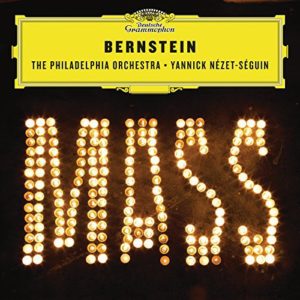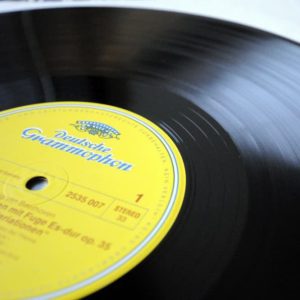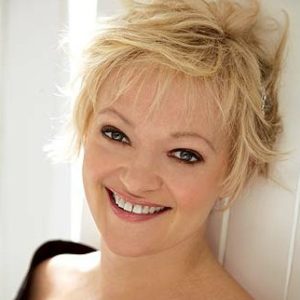GRAMOPHONE Review: Bernstein Mass – Philadephia Orchestra/Nézet-Séguin
 The more live performances, the more live recordings, one experiences of this marvellous piece the more challenging it seems. No question that Bernstein’s inaugural recording – with an extraordinary cast that had been in intensive rehearsal for its premiere – stunned us into a false sense of security. For sure there is much to enjoy in this latest live offering from a conductor I could have predicted would take it to heart and “get” it. And like Marin Alsop’s Naxos version the sound here is undoubtedly several notches up from Bernstein’s own. But there are issues.
The more live performances, the more live recordings, one experiences of this marvellous piece the more challenging it seems. No question that Bernstein’s inaugural recording – with an extraordinary cast that had been in intensive rehearsal for its premiere – stunned us into a false sense of security. For sure there is much to enjoy in this latest live offering from a conductor I could have predicted would take it to heart and “get” it. And like Marin Alsop’s Naxos version the sound here is undoubtedly several notches up from Bernstein’s own. But there are issues.
First up, it’s good at last to have new pre-recorded tapes after years of making do with the originals which had degraded so badly. And Nézet-Séguin has a very talented young artist in Kevin Vortmann for the all-embracing role of the Celebrant – he has the authority, the vocal beauty, and most importantly the vocal mix to facilitate an effortless transition into confidential head-voice. Marin Alsop’s Jubilant Sykes had problems across the break and there’s no question it compromises the vocal writing every time I listen to it. Then again you could argue that Vortmann is a little too ‘legit’, a hair’s breadth too ‘formal’ in “Simple Song” – this is a kid with a guitar, after all, and the song, though anything but simple, needs to feel that way.
But from the moment Bernstein’s marching bands pile in with their syncopated Kyries (an immediate whiff of Broadway in the side drum’s rim-shots – a little too polite here) Nézet-Séguin has the measure of the genre-hopping with all its attendant audacity. It’s that idea – and it’s a key message of the piece – that music as a shared, communal, experience can in itself take us that much closer to the divine.
So most of my reservations concern the all-important “street singers” whose genre-defying Tropes are the life and soul of the piece. Frankly, for all the technical difficulty of their solos, they have to come from the musical theatre sector, from pop, or soul, or blues, but with serious musical ‘chops’, and whilst Nézet-Séguin might appear to have done just that one is conscious of a set of skills that is more legit than streetwise and colloquial. Plus there is the added stress of this being a live theatre performance. The First Rock Singer here clearly has trouble freeing the angular rhythms of “I Don’t Know” and later in the piece I prefer a male to a female in “I Believe in God”. “God Said” is perhaps too feisty a tempo to really nail the words and is a bit of a scramble at the climax. Then again, Sarah Uriarte Berry’s “Thank You” is beautiful.
The “Meditations” display the requisite intensity – each a moment of intimate soul-searching (for Bernstein and for us all). The glorious melody that emerges from the first of them points us towards conflict , confusion, and a far-off reconciliation: the inevitable moment of catharsis so beloved of the ever-hopeful Bernstein.
For me this whole performance really comes into its own from the Offertory onwards. The fervent Jewish Dance of Life that springs from Gloria Patri! is tremendous – Lenny asserting his identity and then some. And the way the achingly simple setting of The Lord’s Prayer melts into “I Go On” (gorgeously sung by Vortmann) is in itself cathartic – a beautiful confessional of a song if ever one existed.
The great meltdown of the Agnus Dei – where the demand for peace that is promised but never delivered spills over into anarchy – is as ever hair-raising. As is Vortmann’s emotional breakdown “Things Get Broken” (part prompted, no doubt, by the Peter Grimes mad scene which Bernstein revered). The actor must step up here through all the word-play and half-remembered themes – and Vortmann does.
I still could not be without Bernstein’s own recording which has a surfeit of beauty and drama and pizzazz and Alan Titus’s extraordinary Celebrant (Titus went on to become a Wagnerian baritone singing Wotan at Bayreuth). But technology has moved on and this new Nézet-Séguin at very least demands an airing.
You May Also Like

MUSICALS Podcast: Edward Seckerson meets JAC YARROW
09/08/2024
GRAMOPHONE: From Where I Sit – February 2018
28/02/2018

